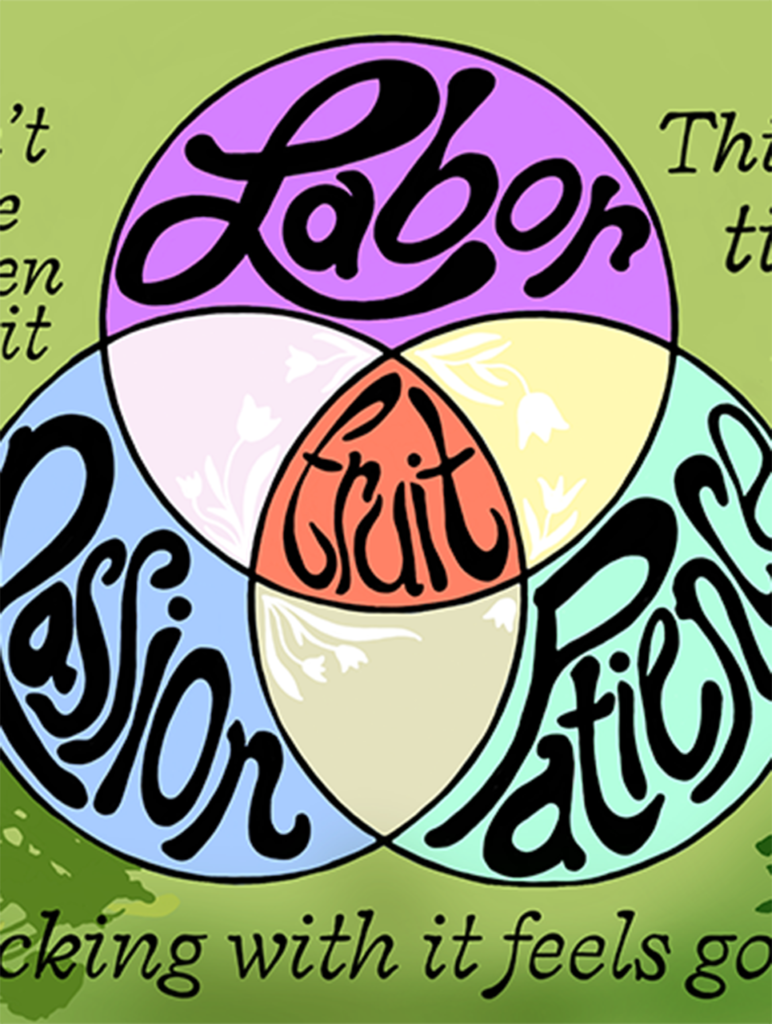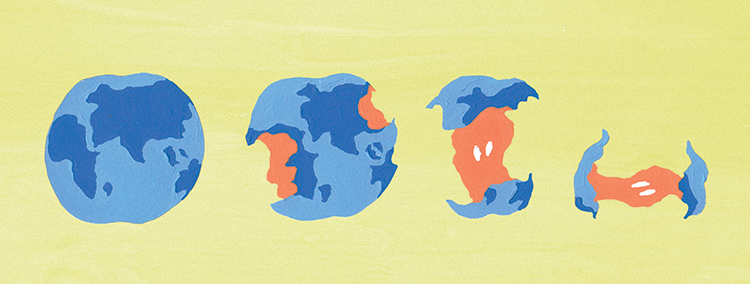Throwing It All Away
by Heather Shayne Blakeslee
American women do 10 more hours of housework per week than their male partners—more than a full workday. Marketers, smartly, continue to target women with messages about convenience and saving time. My sister, a chemical engineer and mother of three, is fully aware of this dynamic. She once showed me a bottle of Go-Gurt that she “ate” in her car on her way to work after she got the kids to school. “Do you see this?” she said, exasperated, holding up her plastic-bottle breakfast and reflecting on her schedule. “They made this for me. I am the target market for this product.”
In the book “Never Done: A History of American Housework,” historian Susan Strasser writes that a century ago, as we moved into the time of mass-marketed products, advertisers sold us convenience “as an end to itself… holding out the premise that the burdens might be lightened with the promise of the latest products.” Consumerism has become an ethos, an art and a science.
A mid-century check-in point would be a scene in the series “Mad Men,” in which the Draper family is ending a roadside picnic. Don, ever the suave ad man (and the occasional family man), tosses his beer can into the woods. His wife, Betty, a stay-at-home mom who is always perfectly coiffed and coutured, begins to pack up and dutifully performs a “hand check” on the kids to make sure they are free of dirt before they scramble into the car and back to their suburban home. Then, she grabs the corners of the picnic blanket, and we watch (some of us in horror) as she shakes off paper napkins and other refuse, flinging it away into the sunny day.
We see litter; Betty and her contemporaries, with a little help from Don’s slogans and jingles, see liberation. Cleanliness, convenience, housework and waste are a closely interwoven set of ideas, and the gendered component to them still looms large.
The inconsistent acts of making sure that the kids aren’t too dirty to get into the car and then throwing their garbage out into the world at large is jarring. But it still perfectly captures—even 40 years later—our modern mindset. We keep our own lives clean and convenient while not troubling to think of the planet or the people who bear the consequences.
The fact that we all equate the idea of “single-serve” and “disposable” with “easy” and “clean” is the great success of ad men like Don Draper; it is also the great lie of the 20th century.
For women in particular, our lives—by many measures—are better than they used to be. We have moved away from hand-making nearly everything that keeps our life going in the realms of food, clothing and shelter, and, despite the uneven distribution, have been spared from endless hours of housework. There is no sense romanticizing a time one hundred years ago when the weekly washing took an entire red-knuckled, backbreaking day.
But the ease of canned soup for lunch while the washing machine whirs has come at a price to our environment and values. We have piled our landfills to the brim with shoddy construction materials, packaging from food and “durable goods” ordered online that were not meant to last, only to separate us from our latest paycheck.
As we move into this next era we need to come to terms with the fact that it is not enough to recycle our bottles at the end of the day; we need to stop consuming at our current rate. We must unlearn convenience as a virtue and rediscover what really matters to us. We have more opportunity than ever to live better lives—we need to take care not to throw it all away.













This article is on point! And articulates well this issue I’ve been thinking about. Some of my efforts to reduce waste may come off to others as anti-feminist and old fashioned since they are creating more housework for myself. I do not use disposable diapers, paper towels, or paper plates, and I cook way more things from scratch than most Americans. We need to stop thinking of inconvenience as anti-feminist and come to terms with how anti-environment it is!